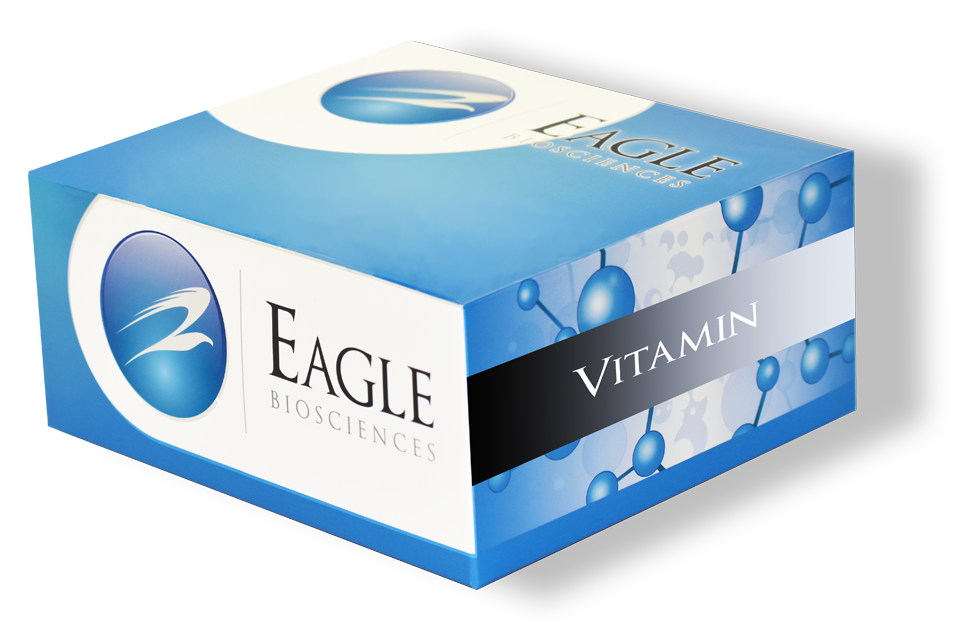Biotin Serum/Plasma/Urine ELISA Assay Kit
Biotin Serum/Plasma/Urine ELISA Assay Kit is manufactured in Germany by Immundiagnostik
Size: 1×96 wells
Sensitivity: 32.4 ng/L
Dynamic Range: 48.1 – 1100 ng/L
Incubation Time: 1.25 hours
Sample Type: Serum, Plasma, Urine
Sample Size: 50 µl
For Research Use Only
Controls Included
Reference range
Based on studies of samples of apparently healthy persons (n = 40), the following ranges were estimated:
Healthy: ≥ 250 ng/l
Suboptimal status: 100–249 ng/l
Vitamin deficiency: < 100 ng/l
We recommend each laboratory to establish its own reference range. To assure a correct diagnosis of biotin deficiency, we recommend to analyse the biotin level on several consecutive days as biotin undergoes daily fluctuations of up to 100%. Especially supplementation can cause the biotin level to increase tremendously in a very short time.
Urine
Adequate biotin supply is considered to start at levels of 70 nmol/l (equals 17101, 7 ng/l) and higher.
Assay Principle
This Biotin ELISA Kit is a competitive ELISA for the determination of biotin in human serum, plasma, urine and milk. Samples, standards and controls are pipetted into the wells (pre-coated with streptavidine) and incubated. After a washing step, conjugate (enzyme-labelled biotin) is added and competes against the biotin in the samples, standards and controls for streptavidin on the microtiter plate. Unbound enzyme-labelled biotin is washed away and the enzyme substrate TMB is added, resulting in a colour reaction. Finally, the reaction is terminated by an acidic stop solution causing a colour change from blue to yellow. The color intensity is inversely proportional to the biotin concentration. A dose response curve of the absorbance unit (optical density, OD at 450 nm) vs. concentration is generated using the values obtained from the standards. Biotin present in the samples is determined from this curve.
Related Products
Biotin Microtiter Plate Assay Kit
Niacin Microtiter Plate Assay Kit


